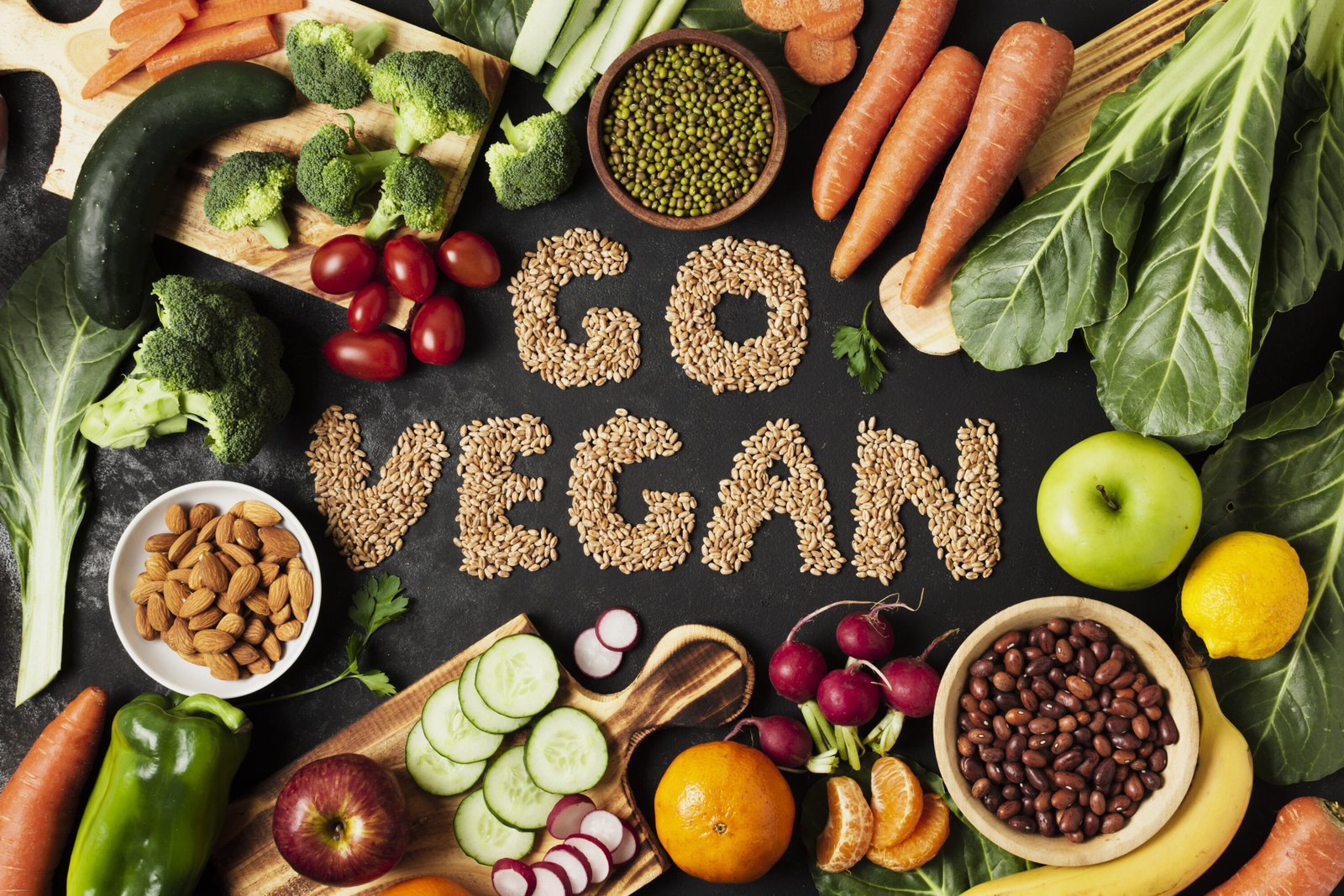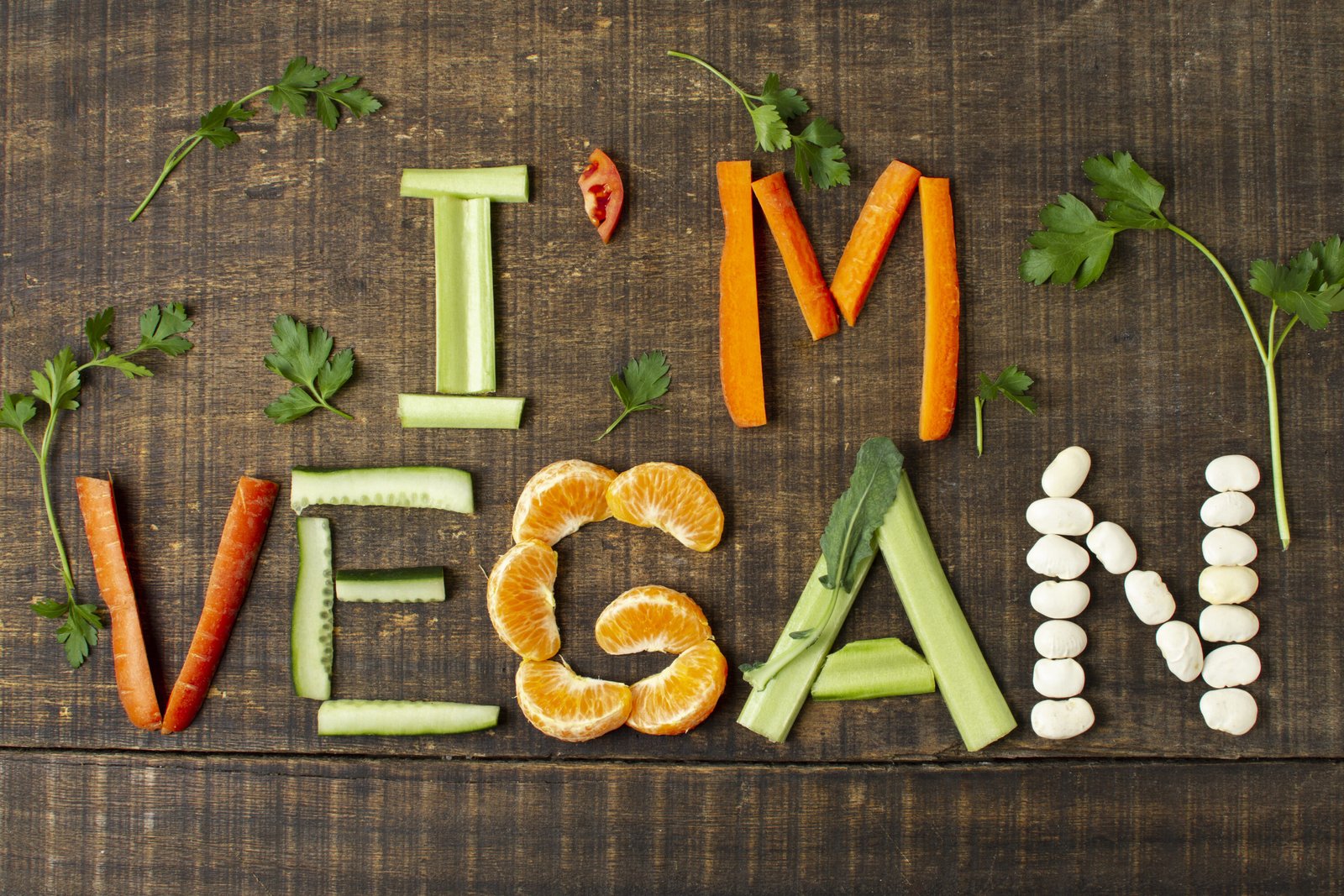
Veganism
veganism is a way of living which seeks to exclude, as far as is possible and practicable, all forms of exploitation of, and cruelty to, animals for food, clothing, or any other purpose.
There are many ways to embrace vegan living. Yet one thing all vegans have in common is a plant-based diet avoiding all animal foods such as meat (including fish, shellfish, and insects), dairy, eggs, and honey – as well as avoiding animal-derived materials, products tested on animals, and places that use animals for entertainment.
History
Although the vegan diet was defined early on in The Vegan Society’s beginnings in 1944, it was as late as 1949 before Leslie J Cross pointed out that the society lacked a definition of veganism. He suggested “[t]he principle of the emancipation of animals from exploitation by man”. This is later clarified as “to seek an end to the use of animals by man for food, commodities, work, hunting, vivisection, and by all other uses involving exploitation of animal life by man”
The society was first registered as a charity in August 1964 but its assets were later transferred to a new charity when it also became a limited company in December 1979. The definition of veganism and the charitable objects of the society were amended and refined over the years. By winter 1988 this definition was in use – although the phrasing has changed slightly over the years – and remains so today:
“A philosophy and way of living which seeks to exclude—as far as is possible and practicable—all forms of exploitation of, and cruelty to, animals for food, clothing or any other purpose; and by extension, promotes the development and use of animal-free alternatives for the benefit of animals, humans and the environment. In dietary terms, it denotes the practice of dispensing with all products derived wholly or partly from animals.”
Foods that vegans avoid
Vegans avoid all foods of animal origin. These include:
- meat
- chicken
- fish
- shellfish
- eggs
- dairy
- honey
Moreover, vegans avoid any animal-derived ingredients, such as albumin, casein, carmine, gelatin, pepsin, shellac, isinglass, and whey.
Foods containing these ingredients include some types of beer and wine, marshmallows, breakfast cereals, gummy candies, and chewing gum.
Why do people go vegan?Vegans generally choose to avoid animal products for one or more of the following reasons.
Ethics
Ethical vegans strongly believe that all creatures have the right to life and freedom.
Therefore, they oppose ending a conscious being’s life simply to consume its flesh, drink its milk, or wear its skin — especially because alternatives are available.
Ethical vegans are also opposed to the psychological and physical stress that animals may endure as a result of modern farming practices.
For instance, ethical vegans deplore the small pens and cages in which many livestock live and often rarely leave between birth and slaughter.
Ethical vegans may demonstrate their opposition by protesting, raising awareness, and choosing products that don’t involve animal agriculture.
Health
Some people choose veganism for its potential health effects.
For example, plant-based diets may reduce your risk of heart disease, type 2 diabetes, cancer, and premature death.
Lowering your intake of animal products may likewise reduce your risk of Alzheimer’s disease or dying from cancer or heart disease.
Some also choose veganism to avoid the side effects linked to the antibiotics and hormones used in modern animal agriculture
finally, studies consistently link vegan diets to lower body weight and body mass index (BMI). Some people may choose these diets to lose weight
Environment
People may also choose to avoid animal products because of the environmental impact of animal agriculture.
A 2010 United Nations (UN) report argued that these products generally require more resources and cause higher greenhouse gas emissions than plant-based options.
For instance, animal agriculture contributes to 65% of global nitrous oxide emissions, 35–40% of methane emissions, and 9% of carbon dioxide emissions.
These chemicals are considered the three principal greenhouse gasses involved in climate change.
Furthermore, animal agriculture tends to be a water-intensive process. For example, 550–5,200 gallons (1,700–19,550 liters) of water are needed to produce 1 pound (0.5 kg) of beef.
That’s up to 43 times more water than is needed to produce the same amount of cereal grains.
Animal agriculture can also lead to deforestation when forested areas are burned for cropland or pasture. This habitat destruction is thought to contribute to the extinction of various animal species.











